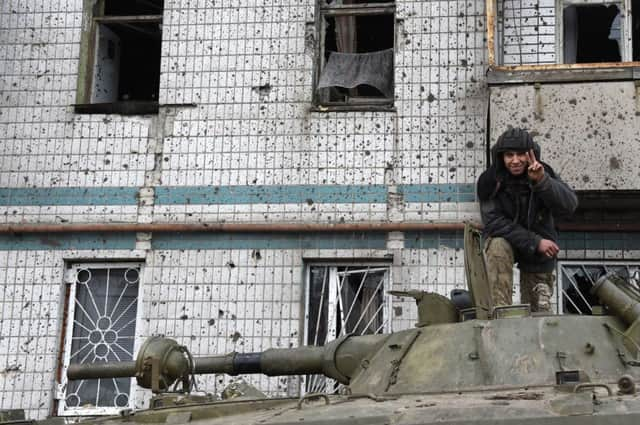Ukraine peace deal in balance, says Angela Merkel


Merkel and French president François Hollande travelled to Kiev on Thursday and Moscow on Friday in a bid to defuse growing violence in Ukraine.
She said it was uncertain whether the talks will succeed, “but it is, from my point of view and that of the French president, in any case worth making this attempt”.
Advertisement
Hide AdAdvertisement
Hide Ad“This conflict cannot be resolved by military means,” Merkel later told the Munich Security Conference. “It is all the more important now to set out substantial steps that serve to fill with life the Minsk agreement.”
Hollande said any deal could feature the creation of a demilitarised zone and greater autonomy for the separatist eastern region of Ukraine.
The two leaders plan to discuss the proposals in a phone call today with Russian president Vladimir Putin and Ukrainian president Petro Poroshenko. Hollande told French television the plan under negotiation would see a 31- to 44-mile demilitarised zone. He called for “rather strong” autonomy in the east. “These people have gone to war,” he said. “It will be difficult to make them share a common life.”
The negotiators’ aim is to draw up a possible joint document on implementing the much-violated September peace plan concluded in Minsk, Belarus. That agreement also featured a demilitarised zone, though battle lines have since changed, and the Kiev government has offered some autonomy to separatists.
Hollande said the current negotiations are a last chance: “Because if we are not able to reach, not a compromise but a durable peace accord, we perfectly know the scenario: it has one name, it is called war.”
The urgent diplomacy comes as western anxiety over the conflict grows and sanctions bite ever harder on Russia’s economy. More than 5,300 people have been killed since fighting began in April, according to the United Nations, and the bloodshed has markedly increased over the past two weeks.
Five Ukrainian servicemen were killed and 26 wounded in fighting over the past day, Ukrainian security spokesman Volodymyr Polyoviy said yesterday. The government website in the port city of Mariupol said one man was killed in shelling of the outlying settlement of Gnutove, which it blamed on rebels.
Merkel acknowledged that experience of agreements being violated on the ground has been “disillusioning”.
Advertisement
Hide AdAdvertisement
Hide AdAsked whether there were any guarantees a new agreement would not suffer the same fate, she said: “There are no theoretical guarantees. After such experiences, I am very cautious with guarantees. The guarantee can only be keeping to what has been agreed but the answer can’t be not to make any more agreements. Of course we have to try again and again, at least I think so.”
Russian foreign minister Sergey Lavrov said he “sincerely” hoped the latest diplomatic drive “will produce results, and those results will be supported by the parties to this conflict”.
As soon as Kiev and eastern Ukrainian separatists agree on practical details of implementing the Minsk deal, “I am sure that Russia will be among those parties that will guarantee the implementation of this agreement,” Lavrov told the Munich conference. “But you can only guarantee what has already been achieved.”
The US and other western countries say Russia has supplied troops and equipment to the separatists in eastern Ukraine who have been fighting Kiev government forces since April. Russia denies this.
Resurgent fighting has prompted the US to consider arming Ukraine, a move opposed by European nations which fear it would make the situation worse.